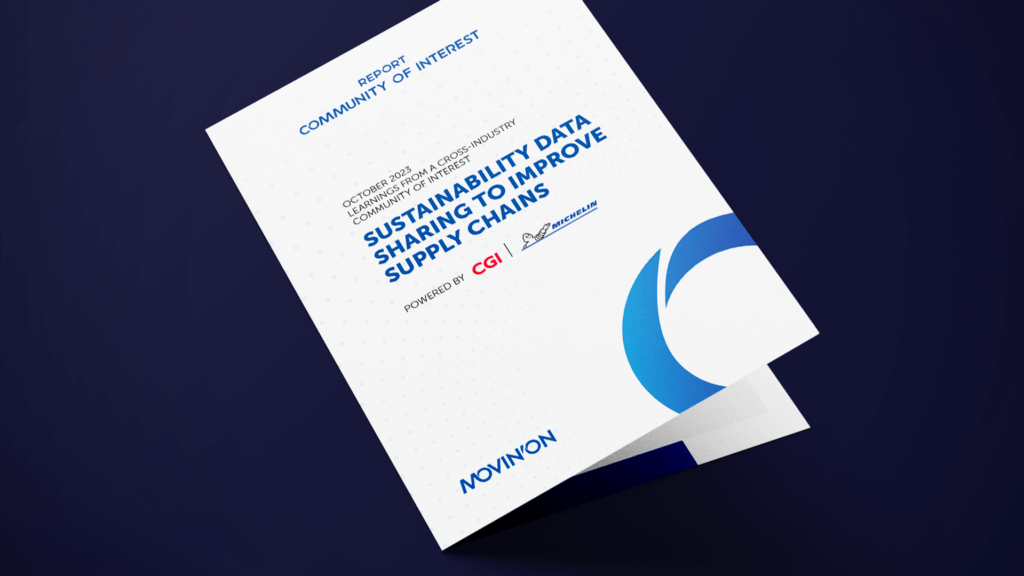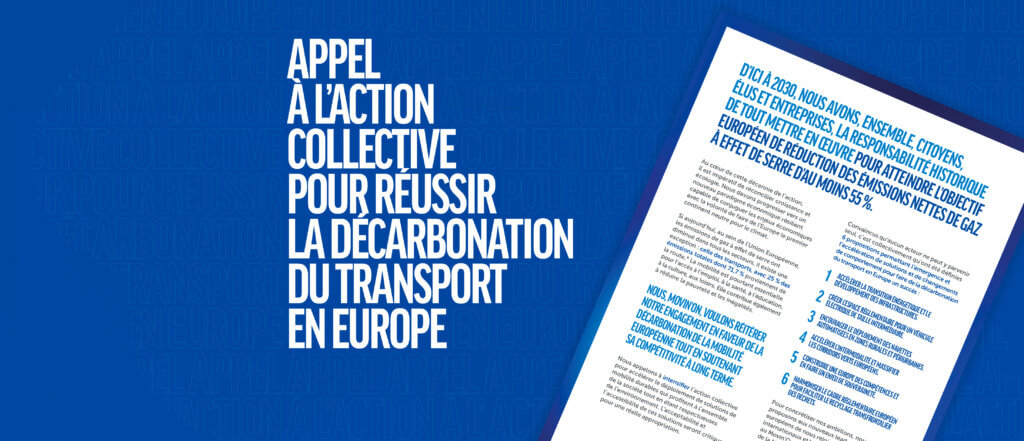Sustainability data sharing to improve Supply Chains

Powered by CGI and Michelin, this paper summarizes the approach, key insights, and recommendations from a Movin’On Community of Interest (COI) focused on improving sustainability across supply chains through crossorganization data sharing.
The COI brought together stakeholders from multiple industries to address the burning question of how companies can work together to collect and share sustainability data to drive measurable improvements for global supply chains.
APPROACH
The COI followed a nine-month process with these phases:
- Hypothesized key data dimensions related to supply chain sustainability.
- Validated dimensions through stakeholder interviews.
- Tested data sharing and analysis for sample metrics (aluminum, recycled content, local sourcing, cybersecurity).
- Developed a framework to assess sustainability opportunities and threats using shared data.
INSIGHTS
Supply chains are vast and amorphous; they also have many companies as part of their ecosystem, and if left uncontrolled, they can potentially cause significant damage to sustainability.
- Data is one of the critical levers to consider when you want to start to manage sustainability.
- Data access and participation took longer than expected, indicating the need for extended timeframes and internal champions.
- Establishing trust through relationships and transparency is critical for data sharing.
- Lack of standardization and fluctuating requirements pose challenges for suppliers.
- Sustainability is not only about the environment and pollution; it is built on environmental, social, economic and governance pillars.
- Prioritizing high-impact focus areas enables progress despite barriers
RECOMMANDATIONS
Obtain C-suite buy-in and dedicated resources.
- Allow longer timeframes for data collection and sharing and secure internal champions.
- Communicate how data will be used, protected, and anonymized.
- Identify shared goals and definitions.
- Focus on the highest risk/impact areas first.
- Develop partnerships and standards for greater transparency.
- Appeal for flexible regulations that enable progress.
Despite challenges, voluntary collaboration can yield valuable insights into supply chain sustainability. With leadership commitment, trust, and access to reliable data, companies can pave the way for datasharing partnerships that drive measurable progress in improving sustainability in the supply chain.
Share
Tweets de @movinonconnect
Movin'On 2035 TODAY EP02 - Circular Economy & Competitivity
Movin’On 2035 TODAY EP01 – Fair Mobility for All https://x.com/i/broadcasts/1yNxagBrWZbGj
✨ THAT'S A WRAP!
Movin'On Summit 2024 has just concluded in Brussels!
More than 350 leaders and experts in sustainable mobility gathered to exchange ideas, collaborate, and share their vision for desirable and decarbonised mobility in Europe. Together, we explored ways to build…
🔴 Live from #MovinOnSummit2024
@AshaSumputh has just invited Denis Machuel, CEO at @AdeccoGroup and Florent Menegaux, President of the @Michelin Group & President of Movin'On
Sustainable mobility news
Discover the latest trends, analyses per theme, and our next meetings.





